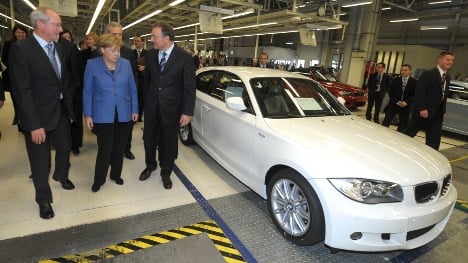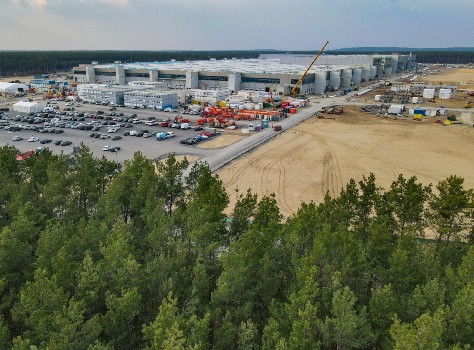BMW has begun to extend its plant in the eastern city of Leipzig in a project launched by German Chancellor Angela Merkel to produce a series model auto it has dubbed Megacity.
Norbert Reithofer, head of BMW, said in a statement that the car would be “the first production model with a carbon fibre passenger compartment.”
BMW formed a joint venture last year with SGL Carbon, a German specialist in the material that is mostly used at present in sports cars owing to its strong resistance, light weight, and high cost.
The first two qualities are well suited to the kind of electric vehicles now under development.
But German manufacturers of powerful sedans and sports utility vehicles have fallen behind competitors in Asia and the United States in the field of electric cars.
The Japanese brand Nissan, for example, is set to launch sales of its Leaf model in December.
Daimler, the owner of Mercedes-Benz, forecasts a roll-out of an electric Smart car in 2012, and Audi, owned by Volkswagen, foresees a launch of its e-tron at the end of that year.
VW plans to add a model of its own in 2013.
On Thursday, the European Federation for Transport and Environment singled out BMW, Daimler and Volkswagen for lagging behind in effort to produce cars that will meet an EU target of 130 grammes of CO2 per kilometre (g/km) by 2015.
AFP/dw



 Please whitelist us to continue reading.
Please whitelist us to continue reading.
Member comments